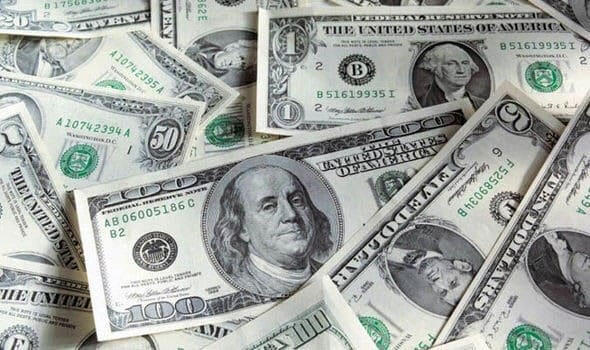
The dollar has retreated from recent highs in Asia
The dollar retreated from recent Asian highs on Friday as a hawkish rate move by the European Central Bank boosted the euro, and investors looked ahead to U.S. inflation data early next week.
Profit-taking followed a dramatic extension of the dollar’s extended gain, and the fall was broad. The Australian, New Zealand, sterling, and yen were all on track for their largest daily gains in a month, while the dollar index was on track for its first weekly loss in four weeks.
Fed Chair Jerome Powell’s speech at a Cato Institute conference on Thursday underlined the central bank’s tough stance against inflation, and markets are pricing in a 75 basis point (bps) rise this month as an 85,5% possibility.
Currencies
The U.S. dollar index was recently trading at 108.88, down 0.66% from its 20-year high of 111.79 earlier in the week. It is expected to fall 0.7% this week. The euro increased by 0.81% to $1.0069. The Australian dollar gained 1.2% to $0.6834. Sterling climbed 0.8% to $1.1591, reversing a minor decline following Queen Elizabeth’s death.
The yen gained nearly 0.91% after Bank of Japan Governor Haruhiko Kuroda joined a chorus of policymakers who expressed concern over the currency’s dramatic decline this week.
Even beaten-down cryptocurrencies advanced at the dollar’s expense, with bitcoin returning to $20,001 and up 5%.
The current velocity of the dollar’s rise has made policymakers nervous, particularly in Japan, where the policy divergence between the Bank of Japan’s ultra-dovish posture and the Fed is too glaring to ignore and is pounding the yen.
BOJ Governor Kuroda said on Friday that during a meeting with Prime Minister Fumio Kishida, he reviewed currency market movements and emphasized that rapid yen movements were undesirable.
The remarks came as the yen hit a 24-year low of 144.98 per dollar on Wednesday. It is down nearly 2% for the week and on track to lose four consecutive weeks.
The Aussie’s rise on Friday was sufficient to propel it toward a meager weekly gain, while the Kiwi’s weekly loss was minuscule. Sterling is expected to gain 0.62% in a week.




